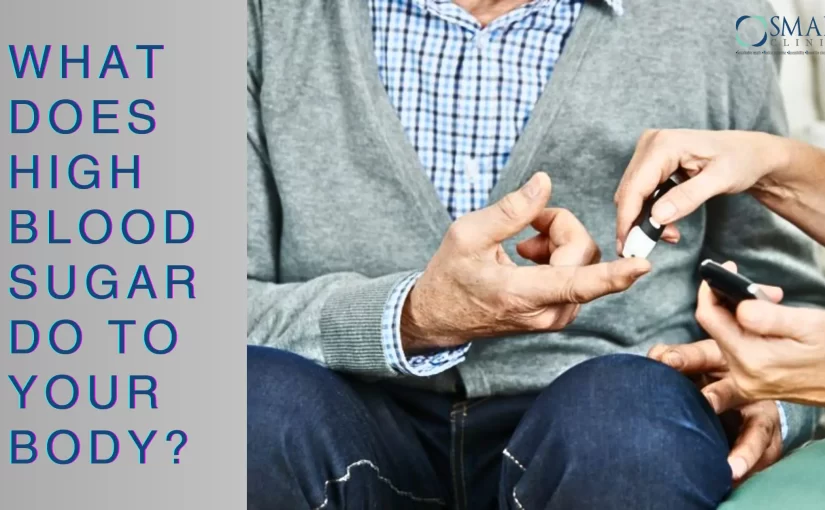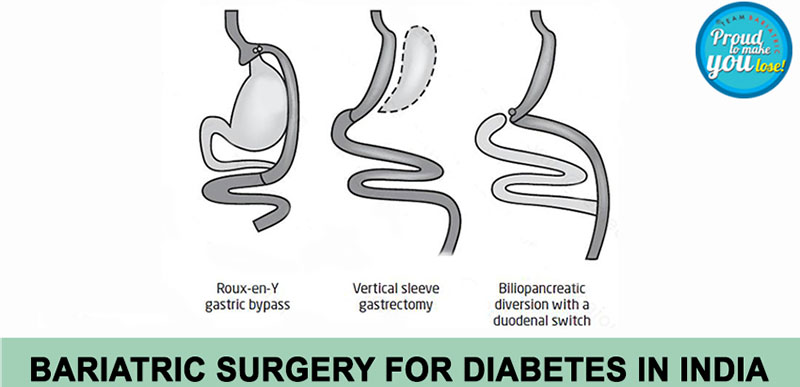High blood sugar is an emergency condition.
Blood sugar, or glucose, is the main source of energy for your body. After you eat, your digestive system breaks down food into glucose, which enters your bloodstream. The hormone insulin, produced by the pancreas, helps regulate blood sugar levels by allowing glucose to enter cells for energy. However, when this balance is disrupted and blood sugar levels remain elevated for prolonged periods, it can cause a variety of health problems.
Understanding the impact of high blood sugar on your health is crucial in preventing complications and maintaining a healthy lifestyle. In this blog, we will explore the immediate symptoms, long-term effects, and strategies to manage high blood sugar to protect your health.
Symptoms of High Blood Sugar
High blood sugar can become quite evident through symptoms ranging from minor discomforts to some serious problems. Hyperglycemia (aka High Blood Sugar) symptoms if detected in the early stages, can result in lesser complications. So, it’s better to look out for the oncoming symptoms as mentioned in the next part of the blog.
Excessive Thirst, Frequent Urination, and Fatigue
Feeling excessively thirsty might be a sign that your sugar level is higher than normal. This happens because your kidneys are trying their best to eliminate excess sugar from your bloodstream. When your kidneys are working this way, they draw more water due to dehydration. Hence, you may experience excessive thirst, and you might drink water, quite frequently.
It is important to know that besides thirst, there are several other symptoms you must look out for. Sometimes, to get rid of the excess sugar content in your bloodstream, your kidneys attempt to get rid of it through urine. The urge to pee frequently might be a sign that the sugar level in your blood is spiking above normal levels, this interferes with your normal activities throughout the day and increases the chance of getting a UTI.
Another common symptom of high blood sugar or hyperglycaemia can be fatigue. When the body is no longer able to process the glucose in your body for energy production, you might feel drained and fatigue quite often. Fatigue often affects your daily-life activities and will definitely affect your well-being.
How It Affects Day-to-Day Functionality
High blood sugar can affect concentration, energy levels, and even mood. As the body tries to fight off the excess glucose, it may bring on mental fog, irritability, and inability to focus. This can stand in the way of your work and daily activities, and it is hard to perform well at your best.
Chronic Effects of High Blood Sugar on the Cardiovascular System
Exorbitant blood sugar levels destroy or damage blood vessels and nerves, increasing the risk of heart disease.
High Blood Sugar’s Link to Heart Disease
Chronic hyperglycemia can cause atherosclerosis, or the accumulation of plaque in the arteries, leading to narrowing and hardening of the arteries. This will impede blood flow, and the heart has to work harder to pump blood, thereby increasing the risk for heart attacks, strokes, and other cardiovascular complications.
People with diabetes, especially those whose blood sugar levels are poorly controlled, have a much greater risk of developing heart disease. In fact, cardiovascular disease is the leading cause of death for people with diabetes.
Kidney Damage and Renal Issues
The kidney is an essential organ for filtering out the waste from your body. If your blood sugar levels remain too high over time, it can cause immense damage to the vitality. Looking out for your blood sugar levels also helps you protect functioning of the kidneys.
How High Blood Sugar Leads to Nephropathy
The complications and problems caused by diabetes can sometimes cause diabetic nephropathy or prolonged kidney disease. The spiking levels of sugar in the bloodstream can destroy the blood vessels inside your kidneys impairing the filtering capabilities of your kidneys, in the long run. This can even escalate to kidney failure, which might need dialysis or even a kidney transplant!
Impact of High Blood Sugar on Vision
High blood sugar can have an extreme impact on your vision, leading to both short-term and long-term problems.
Diabetic Retinopathy Explained
The blood vessels involved in the circulation of blood in your eyes can be impacted with serious damage. When these blood vessels get impaired, they may leak blood or disrupt the blood-flow with blockage and other complications. The hindered flow of blood causes disruption in the flow of oxygen and nutrients to the retina of the eye.
This can lead to vision problems or even blindness. The tricky part is that diabetic retinopathy doesn’t always show symptoms right away, which is why regular eye exams are so important. These check-ups can catch the condition early, sometimes before any noticeable changes in your vision occur.
Effects of High Blood Sugar on the Nervous System
Chronic high blood sugar can also affect the nervous system, leading to painful and debilitating complications.
Peripheral Neuropathy and Chronic Pain
Peripheral neuropathy, a common complication of hyperglycemia, can lead to chronic pain and nerve damage. For individuals with diabetes, regular foot examinations are crucial for early detection and prevention of further complications.
Relationship of High Blood Sugar with Weight and Insulin Resistance
High blood sugar is closely linked to insulin resistance, a condition in which the body’s cells do not respond effectively to insulin.
How High Sugar Impacts Metabolism
In case of insulin resistance, the body must produce more insulin in order to compensate for the inability of the cells to uptake glucose. The result of this is potentially higher levels of circulating insulin, which encourages fat storage and weight gain. Often, excess weight, especially abdominal, exacerbates insulin resistance and starts a vicious cycle.
Connection Between Obesity and Blood Sugar Levels
Obesity is a major risk factor in type 2 diabetes and hyperglycemia. The excess fat, especially abdominal fat, acts to disrupt the body’s use of insulin. Fortunately, even modest weight loss can significantly improve insulin sensitivity and help regulate blood sugar levels.
Lifestyle Changes to Manage Blood Sugar
Managing blood sugar effectively is essential in preventing the long-term complications associated with hyperglycemia. Fortunately, there are several lifestyle changes that can help keep blood sugar levels in check.
Importance of Monitoring and Medication
Monitoring of blood sugar levels must be carried out by diabetes patients or those at risk of developing the same. Your doctor may decide to administer medication, which includes insulin and oral pills, to regulate blood glucose. It is therefore important to heed your doctor’s advice and take your medications as prescribed.
The Role of Diet and Exercise
Diet and exercise is what blood glucose management is. Proper diet, mainly based on whole grains, lean proteins, healthy fats, and high amounts of vegetables, is very much good to regulate blood glucose. Also, processed foods, refined sugars, and carbohydrates need to be avoided as well as restricted in one’s diet.
Another good tool for controlling blood sugar is regular physical activity. Exercise helps the body to use insulin more efficiently and improves its sensitivity to insulin as well as helps in maintaining weight. Try to aim for at least 30 minutes of moderate-intensity exercise most days of the week.
Conclusion: Effects of High Blood Sugar on Your Body
High blood sugar affects the body significantly, starting with your heart and kidneys, passing through to your eyes, and eventually to your nerves. The early detection of the signs and symptoms of hyperglycemia and proper management will prevent complications and ensure a healthy life.
By making lifestyle changes, checking your blood sugar frequently, and following the guidance provided by your healthcare provider, you can prevent major health complications caused by hyperglycemia. With such proactive measures now, you will be able to live a healthier life while avoiding the long-term dangers of hyperglycemia.
Remember, managing blood sugar is a lifelong commitment. Start today, take charge of your health, and look forward to a brighter and healthier tomorrow!
References
- Fatigue and Diabetes
- American Heart Association’s Diabetes and Heart Disease
- National Kidney Foundation’s Diabetes and Kidney Disease
- American Diabetes Association’s Diabetic Eye Disease Guide
- Neuropathy and Diabetes Resources
- Obesity and Diabetes
- CDC Diabetes Medications Overview
- Exercise and Diabetes







